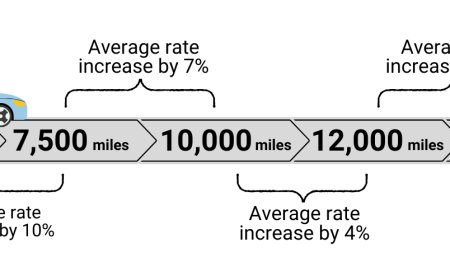The Role of the 8-Minute Rule in Boosting Revenue Cycle Success for Healthcare Providers
Efficient revenue cycle management is essential for healthcare providers seeking financial stability and operational success.

Efficient revenue cycle management is essential for healthcare providers seeking financial stability and operational success. One often-overlooked yet crucial component is the 8-minute rule, a Medicare guideline that directly impacts how therapy services are billed. Understanding and applying this rule accurately is a key trait of the best medical billing services, and it can significantly enhance reimbursement rates while reducing denials and compliance risks.
This article explores how the 8-minute rule works, why it’s vital to the billing process, and how expert billing services use it to support revenue growth for healthcare providers.
What Is the 8-Minute Rule?
Medicare’s Time-Based Billing Standard
The 8-minute rule is a billing guideline used primarily by Medicare and some private payers for time-based therapy services, such as physical therapy, occupational therapy, and speech-language pathology. According to this rule:
-
Providers must spend at least 8 minutes face-to-face with a patient performing a billable, time-based service to bill one unit of that service.
-
Additional time allows for billing more units, following specific intervals (e.g., 23 minutes = 2 units, 38 minutes = 3 units).
The rule ensures that only medically necessary, actively delivered care is billed and reimbursed.
Why the 8-Minute Rule Matters in Medical Billing
Direct Impact on Reimbursement Accuracy
For healthcare providers offering therapy services, improper use of the 8-minute rule can result in:
-
Underbilling (losing revenue for time delivered)
-
Overbilling (leading to audits or penalties)
-
Denied claims due to incorrect coding or documentation
The best medical billing services are well-versed in this rule and ensure precise application to every claim, helping providers maximize revenue while remaining fully compliant.
1. Accurate Unit Calculation Prevents Lost Revenue
Every Minute Counts
One of the most common billing errors in therapy services is incorrect unit calculation. If providers or in-house billing teams miscalculate total time or fail to follow the 8-minute rule structure, valuable reimbursement opportunities can be lost.
How the best medical billing services help:
-
Calculate total billable minutes accurately
-
Apply the proper number of CPT units per session
-
Ensure alignment with payer-specific rules (Medicare vs. commercial)
This level of precision helps healthcare providers capture all earned revenue without fear of rejection or recoupment.
2. Improved Documentation and Audit Preparedness
Compliance Starts with Clear Records
The 8-minute rule demands meticulous documentation that shows:
-
Start and end times of each service
-
Type of service provided
-
Total one-on-one time spent with the patient
The best medical billing services train or guide providers on proper documentation standards, ensuring notes support billed services.
Benefits:
-
Stronger defense against payer audits
-
Fewer denied or delayed claims
-
Clear justification for each billed unit
3. Reducing Denials Through Expert Code Selection
Matching Services with the Right CPT Codes
Understanding which CPT codes are time-based (e.g., therapeutic exercises, neuromuscular re-education) and which are service-based (e.g., evaluations, hot/cold packs) is critical. Only time-based codes fall under the 8-minute rule.
How billing experts support providers:
-
Use updated coding software or knowledge bases
-
Double-check session time against units
-
Prevent errors that lead to claim rejections
The result is a cleaner claim submission process and higher approval rates, leading to a healthier revenue cycle.
4. Streamlining Workflow for Therapy Practices
Focus on Care, Not Calculations
When therapists spend time managing billing or correcting errors, patient care suffers. Outsourcing to the best medical billing services that understand the 8-minute rule allows providers to:
-
Focus on delivering quality care
-
Delegate time tracking and unit billing to experts
-
Avoid the burden of compliance complexities
This efficiency not only improves financial outcomes but also enhances patient satisfaction by freeing up the provider's time.
5. Boosting Long-Term Revenue Cycle Performance
Small Details, Big Financial Impact
Over weeks and months, even minor errors in applying the 8-minute rule can cost a practice thousands in lost revenue. On the flip side, consistent compliance with accurate billing and optimized documentation strengthens the entire revenue cycle.
Long-term benefits:
-
Predictable cash flow
-
Reduced write-offs and resubmissions
-
Improved payer relationships and fewer audits
By partnering with the best medical billing services, providers ensure that every eligible service is billed correctly, laying the foundation for sustainable financial success.
Conclusion
The 8-minute rule may seem like a small detail in the billing process, but its correct application can significantly influence a provider’s bottom line. For therapy clinics and healthcare practices, working with the best medical billing services ensures this rule is followed accurately—resulting in better reimbursements, reduced denials, and a more stable revenue cycle.






































